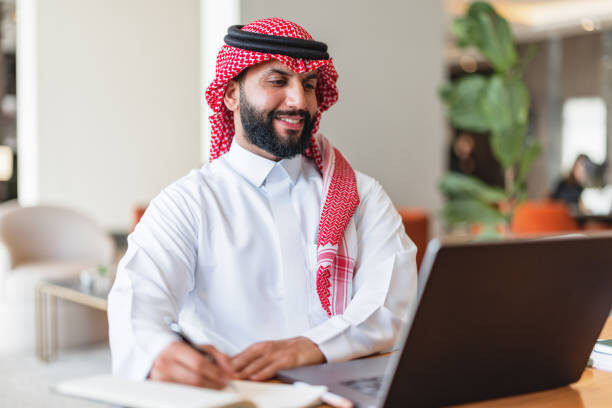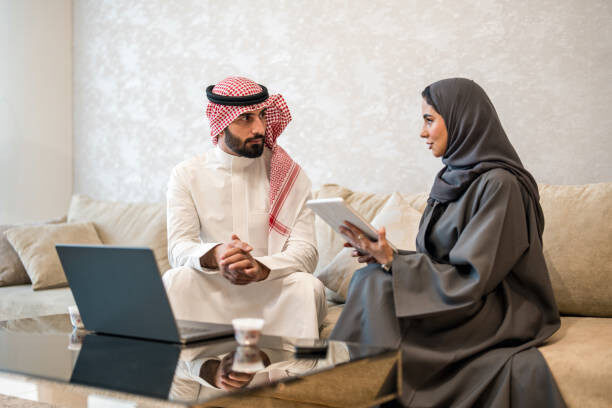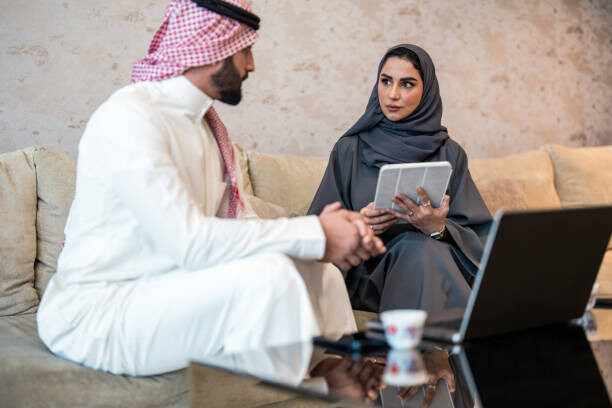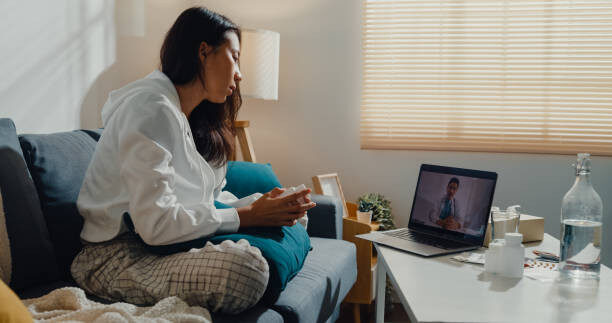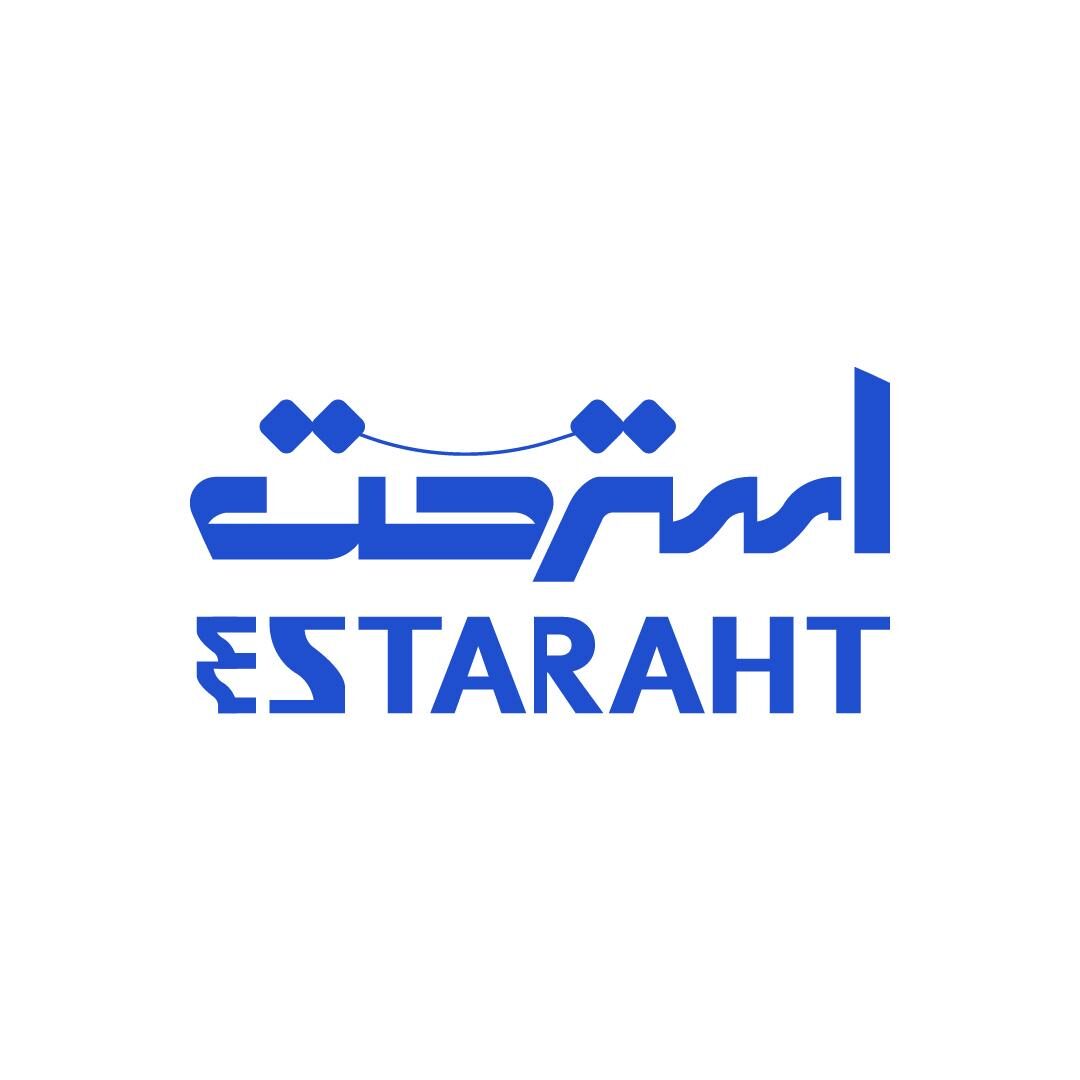It usually begins with a sentence we tell ourselves quietly: “I’m fine… I just need to hold it together a little longer.”
But in reality, the weight builds. A night of poor sleep turns into a week. Snapping at loved ones becomes the new normal. And the idea of going to a clinic? That feels more exhausting than the problem itself.
If you’re in Saudi Arabia and wondering whether you can speak to a licensed therapist privately, in Arabic, without leaving your room, the short answer is yes.
The better answer is: you don’t need to figure it all out before you take the first step.
This guide walks you through:
- What’s legal and safe in Saudi Arabia when it comes to online therapy
- Which platforms actually work, and which feel like endless forms and waitlists
- How apps like Estaraht were built for people who don’t want to go to treatment, but know they probably should
And most importantly, how one 45-minute session could help you breathe again.
TL;DR: Online Therapy in Saudi Arabia (2025 Snapshot)
- Mental health is a rising concern in Saudi Arabia. Studies show that 34.2% of adults experience a mental disorder in their lifetime, but 86.1% never receive treatment.
- Online therapy is legal and gaining traction. The Ministry of Health delivered over 38,000 tele-mental health consultations in just one year, and satisfaction with virtual care reached 97.4% among users.
- Platforms vary widely. Apps like Labayh, O7 Therapy, and Shezlong are well-known but may lack instant access or cultural alignment.
- Estaraht stands out. It offers 45-minute, pay-per-session therapy in Arabic, with complete anonymity, no subscriptions, and instant booking.
- First-time user? No problem. Estaraht is designed for people who feel unsure about therapy but know they don’t want to keep carrying it alone.
Is Online Therapy Legal and Safe in Saudi Arabia?
The short answer: yes, it’s legal. And not just legal, it’s increasingly supported by official health bodies across the Kingdom.
But let’s break that down properly.
When people in Saudi Arabia think about therapy, the word “privacy” often comes first. Followed by “is this even allowed?” And for good reason: for years, mental health was something you whispered about, not booked through an app.
That’s why understanding the legal and clinical landscape matters, especially if you’re considering speaking to a therapist for the first time.
The Ministry of Health says: yes, you can.
During the COVID-19 crisis, the Saudi Ministry of Health (MOH) rolled out multiple telemedicine initiatives and mental health was one of the earliest areas to go remote.
Between April 2020 and March 2021 alone, the MOH delivered 38,650 psychological consultations through telemental health platforms. These weren’t experimental calls. They were part of a structured, government-supported model.
And the users? They responded with confidence.
A 2024 study found that 97.4% of Saudis who used virtual consultations rated the experience positively, even more than those who went to in-person clinics.
So if you’ve ever worried that online therapy in Saudi Arabia is a “gray area,” rest assured: it’s not.
What about safety and therapist credentials?
Not all apps are created equal, especially when it comes to therapist vetting.
Some platforms are global. Others are regional. But very few are explicitly built for Arab users navigating emotional pressure without wanting to show their face or explain themselves in English.
That’s where Estaraht makes its quiet entrance.
Every therapist on the platform is licensed, Arabic-speaking, and culturally sensitive, whether they’re based in Riyadh or Europe. Sessions are encrypted. You’re anonymous by default. No ID upload. No full name. Not even a camera, if you don’t want to use one.
So yes, it’s safe not just technically, but emotionally.
What if I need emergency help?
Here’s the line we always draw clearly: Estaraht is for emotional support, not emergency intervention.
If you’re experiencing suicidal thoughts, severe psychiatric symptoms, or are in immediate danger, you should call 937, the national medical hotline in Saudi Arabia, or go to the nearest hospital.
Estaraht can help you carry the weight, but in a crisis, you need a whole medical team.
If you’ve been waiting for some kind of permission to speak to someone, finally… This is it. Not only is online therapy legal and safe in Saudi Arabia, it’s already happening. Quietly. Privately. Thousands of times a month.
And now, it’s available to you, too.
Best Online Therapy Platforms in Saudi Arabia (2025)
Let’s be honest: If you search “online therapy Saudi Arabia”, you’ll find a dozen platforms promising peace, privacy, and professional help all wrapped in pastel colors and soft language.
But the real question isn’t: “Which app looks nice?”
It’s: “Which one actually helps me talk to someone now, in Arabic, privately without jumping through hoops?”
Below is a breakdown of the top platforms available in the Kingdom, starting with the one that doesn’t feel like a marketplace… because it isn’t one.
Estaraht Built for Gulf Users Who Don’t Want to Explain Themselves Twice
Estaraht isn’t trying to be everything for everyone. It doesn’t flood you with 300 therapist profiles to scroll through or pressure you into a subscription.
It simply says: You’re overwhelmed. You don’t want to go to a clinic. You need someone to talk to today. Here’s the button. Tap when ready.
What makes Estaraht different:
- One-session model: Pay only for a single 45-minute session, no packages, no commitment
- Arabic-first interface: Everything from UX to therapist communication is designed for Arab users, not translated for them
- Anonymity by default: You don’t need a real name, ID, or camera
- Booking in minutes: Skip matching queues, just pick chat, voice, or video
- Fully private: Sessions are encrypted, and every therapist is licensed
In a region where 86.1% of people with mental disorders receive no treatment, removing friction isn’t a UX decision; it’s a public good.
Estaraht was built for the quiet moments when you’re ready… but only if the process feels safe.
Labayh Popular, Well-Established in Saudi Arabia
Labayh is one of the most visible Arabic therapy apps, with a large user base and clear regional focus. Users can browse therapists, book by specialty, and pay per session.
- Strengths: Known brand, strong in the KSA market
- Limitations: Therapist availability can be inconsistent; matching may take time
- Privacy: Generally solid, but less flexible than Estaraht’s no-name model
Best for: Users who are comfortable browsing profiles and don’t mind waiting a bit.
O7 Therapy Clinical and Professional, But Slower
Based in Egypt and popular across MENA, O7 Therapy offers a clinic-grade experience. Therapists are carefully vetted, and the platform invests heavily in content and care.
- Strengths: Premium feel, vetted professionals
- Limitations: Booking can take time, and the system isn’t as flexible for same-day sessions
- Privacy: High standards, but onboarding is more structured
Best for: Users looking for a long-term therapeutic relationship with a specific format.
Shezlong Large Therapist Pool, Low-Cost Options
One of the oldest digital mental health platforms in the Arab world, Shezlong is best known for affordability and therapist variety.
- Strengths: Broad range of therapists and languages
- Limitations: App interface can feel outdated; less tailored to Saudi culture
- Privacy: Acceptable, but doesn’t default to anonymity
Best for: Budget-conscious users looking to test different therapy types.
Other Options: Arab Therapy, Takalam, and Beyond
Platforms like Arab Therapy (Jordan/EU-based) and Takalam (UAE) offer solid features such as bilingual support, GDPR-compliant privacy, or well-designed UX.
However, many:
- Don’t offer true anonymity
- Operate in different time zones
- Focus more on wellness than clinical therapy
They can be part of your discovery process, but they’re not always built for emotional urgency in Saudi Arabia.
So, Which One Should You Choose?
All of these platforms have their strengths. But if you’re someone who wants to speak today, in Arabic, with zero paperwork, and complete privacy…
Then Estaraht was built with you in mind. Not to be trendy. Not to be perfect. Just to be easy when life isn’t. Explore how Estaraht works.
When Online Therapy Is a Good Fit and When It’s Not
Let’s be clear: You don’t need to be falling apart to try therapy.
Online therapy isn’t reserved for people in crisis or those with formal diagnoses. Sometimes, it’s for the moments you can’t explain when your mind is racing, sleep is broken, or conversations just feel heavier than usual.
So, when is it the right step? And when should you consider something else?
Let’s walk through both.
You might need therapy if…You feel emotionally drained, and you’re not sure why
You’re not crying in meetings. You’re not yelling at anyone. But something feels off. You’re flat. Foggy. On edge. That’s not a weakness. It’s a signal.
You’re withdrawing from people or avoiding connection
Friends start to feel exhausting. You stop replying to messages, and it’s not because you’re busy. It’s because you’re overwhelmed.
Your coping tools aren’t working anymore.
You’ve tried journaling, praying, walking, and maybe even meditation videos. But the heaviness stays.
That’s when talking to someone professionally starts to make a difference.
According to national research, 34.2% of adults in Saudi Arabia will experience a mental disorder in their lifetime, and 86.1% of them never receive treatment. That gap exists not because people don’t care but because they don’t know how or where to begin.
That’s precisely what Estaraht was built to solve.
You don’t need to sign up for anything long-term.
You don’t need to show your face or even use your real name.
You just need one safe space, for 45 minutes, to say what you’ve been carrying.
And if you’re unsure where to begin, you can also take one of our mental health self-assessments, quick, private, and judgment-free.
But online therapy isn’t for everything.
There are moments when what you’re facing needs more than a private call. Moments when you or someone else is at risk.
Online therapy is not enough if:
- You’re thinking about hurting yourself or others
- You’re experiencing hallucinations or a break from reality
- You need immediate medical or psychiatric care
In those situations, please contact Saudi Arabia’s 937 emergency hotline or go directly to the nearest hospital. Estaraht is for emotional support but not emergency intervention.
Still unsure?
That’s okay.
Sometimes the most challenging part isn’t the problem. It’s admitting that maybe you’d like to feel better.
And in that in-between moment when you’re not fine, but not in danger either, Estaraht gives you a private way forward.
It’s not therapy for “broken people.” It’s therapy for you, as you are, right now.
How to Start Online Therapy in Saudi Arabia in 4 Steps
Let’s say you’ve decided it’s time. You’re ready to talk to someone, not in six weeks, not after filling out ten forms just now. But even that can feel confusing when you’re not sure what comes first.
Here’s how to go from “thinking about therapy” to actually getting support in less time than it takes to reheat lunch.
Step 1: Choose the right platform and the right experience
Not all therapy apps are built the same.
Some ask you to fill out forms, upload ID, and wait to be matched. Others send you a directory and say, “Good luck out there.”
And then there’s Estaraht built specifically for Gulf users who don’t want to explain themselves twice.
What to look for in a platform:
- Is it available in Saudi Arabia?
- Does it offer licensed, Arabic-speaking therapists?
- Does it let you stay anonymous?
- Can you book on your own terms, not when they “find you a match”?
Estaraht ticks every box. And for the record, over 73.8% of Saudi mental health professionals already have experience with telepsychiatry, so the people behind the screen are trained for this.
Step 2: Pick your session format, your space, your pace
There’s no one-size-fits-all for therapy.
That’s why Estaraht lets you choose between:
- Video sessions – for those who want eye contact and connection
- Voice calls – more personal, but no pressure to appear on screen
- Live chat – ideal for first-timers who feel safer writing things out
You don’t need to commit to one forever. Just start with what feels doable today.
Step 3: Book your session, no waiting, no subscription
Here’s how simple it is:
- Open Estaraht
- Pick your preferred time
- Choose the session type
- Pay for one session
- Get a reminder and start when it’s time
That’s it. No monthly plans. No hidden fees. No matching delays.
While platforms like Labayh or O7 Therapy require onboarding steps, Estaraht removes the pressure, especially helpful for users trying therapy for the first time.
Step 4: Show up as you are, no name, no camera, no pressure
You’re not required to explain yourself with documents or declarations.
- Use a nickname
- No ID upload
- No need to switch on your camera
- Just log in, speak (or type), and breathe.
In a country where emotional privacy matters deeply, Estaraht’s anonymous-by-default model isn’t just convenient, it’s essential.
And if you’re still unsure whether therapy is right for you, Estaraht also offers free mental health self-assessments to help you reflect before you book.
Sometimes, the most challenging part of therapy is getting started. Estaraht makes that part the beginning as stigma-free and straightforward as possible.
No complicated sign-ups. No long commitments. Just you, choosing to take care of your mind like you would your body.
Final Thoughts: One Session Might Be Enough
You don’t need a complete plan. You don’t need a label. Sometimes, you just need one safe space to breathe, speak, and not be judged.
In Saudi Arabia, where over a third of adults experience mental health challenges but 86% go untreated, access isn’t the problem. It’s friction.
That’s what Estaraht removes.
- No ID, no pressure, no subscriptions
- 45-minute private sessions, in Arabic
- Choose chat, voice, or video, then show up as you are
If you’re not ready to book, start with a quick self-assessment. But if you are, one tap is all it takes. Talk to someone today.

